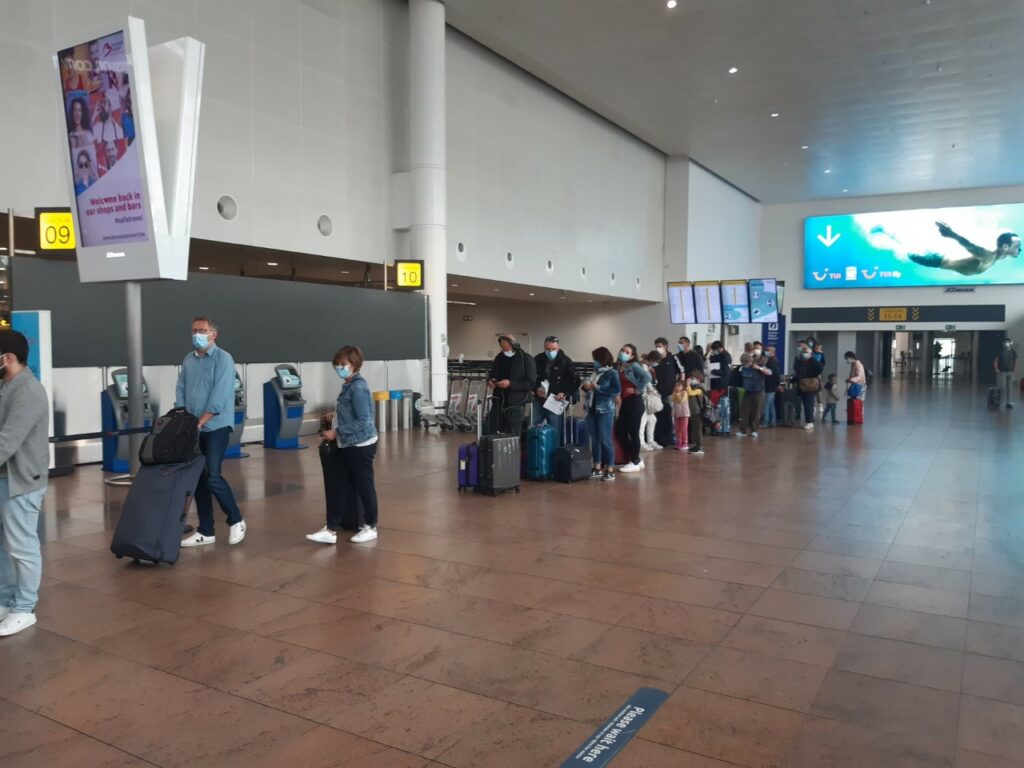The EU member states agreed on Wednesday evening to recommend a number of measures for passengers to and from China and disregard the protests of the Chinese authorities.
“China must share data transparently on its current situation,” twitted Stella Kyriakides, Commissioner for Health and Food Safety, after the agreement. “We can only tackle the pandemic if we work closely together at EU and global level.”
The decision was described as a coordinated precautionary approach in response to the increase of COVID-cases in China. It was taken at a meeting of the Integrated Political Crisis Response (IPCR) at the initiative of Sweden, which just had taken over the rotating EU Presidency.
“Sweden called the meeting of the IPCR to discuss the current situation and the question of entry restrictions on travelers from China,” commented Jakob Forssmed, the Swedish Minister for Social Affairs and Public Health. “It’s good that the EU has now adopted a common approach, providing conditions to manage the situation concertedly and effectively.”
The decision lists a number of non- binding measure and follows the discussion in Health Security Committee, whose opinion was published on Thursday after the IPCR meeting. The only country which abstained from endorsing the committee’s opinion was Poland but no reason for it was given in the opinion.
The Commission is relying on scientific advice from the Health Security Committee which includes experts from the health authorities in the member states.
The European Centre for Disease Prevention and Control (ECDC) issued a report on Tuesday on the increase of COVID-19 cases in China and its impact on the EU but abstained from issuing advice to the EU on what action to take. A spokesperson told The Brussels Times that this is not within the mandate of the agency and that it is up to the member states and the Commission to decide.
Whad did the Council recommend?
As previously reported, Belgium will follow the EU advice for the member states and will make a negative test mandatory for travelers from China.
The member states are strongly encouraged to introduce, for all passengers departing from China to Member States, the requirement for a negative COVID-19 test taken not more than 48 hours prior to departure from China. While this is the most important recommendation, there are more recommendations.
All passengers on flights to and from China should wear a medical mask, or FFP2/N95/KN95 respirators. International travelers coming from or destined for China, as well as to aircraft and airport personnel, will also receive advice regarding personal hygiene and health measures
Member starts are also encouraged to complement these measures with random testing of passengers arriving from China on arrival in the EU, the sequencing of all positive results to strengthen surveillance of the epidemiological situation, and testing and sequencing of wastewater from airports with international flights and aircraft arriving from China.
Domestically, the member states should continue to promote vaccine sharing and the uptake of vaccines, including booster doses, particularly among vulnerable groups.
How did the Commission react?
A Commission spokesperson told The Brussels Time on Friday that the EU needs to work together, in solidarity and coordination, when it comes to the COVID-19 pandemic.
“This also applies to how Member States respond to the evolving COVID-19 situation in China. The Commission considers that given the circumstances and the scarcity of reliable data on the epidemiological situation in China we should take a precautionary approach, ensure we remain vigilant, and give ourselves all the necessary tools to detect any new threats as early as possible.”
“Having learnt the lessons from the early stages of the COVID19 pandemic, it is important for the EU and its Member States to take a united position and coordinate national measures.”
The member states are now expected to put in place the appropriate measures at national level to implement the IPCR conclusions. They will report on the measures taken to the Health Security Committee, which will meet again on 11 January. The Commission will continue to facilitate discussions between member states and ensure the necessary coordination.
The member states agreed to continue a close monitoring, assessing the situation and reviewing the introduced measures by mid-January.
M. Apelblat
The Brussels Times

